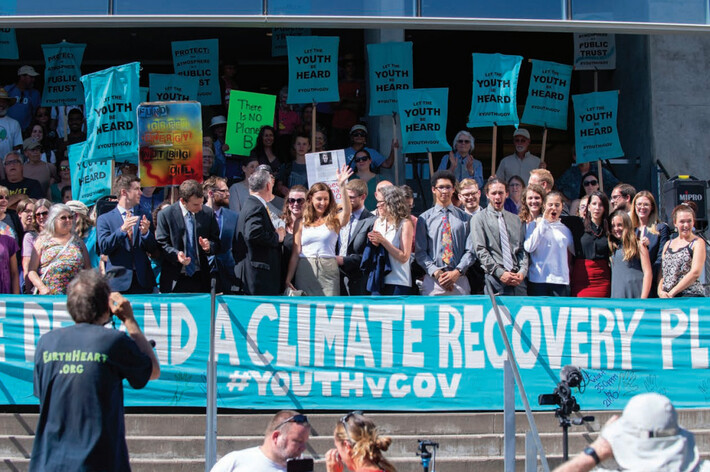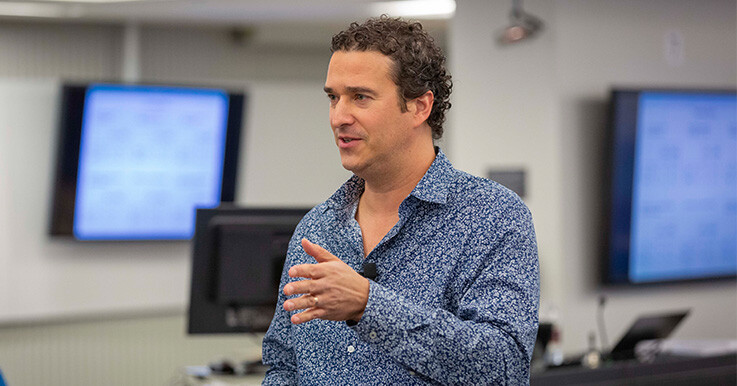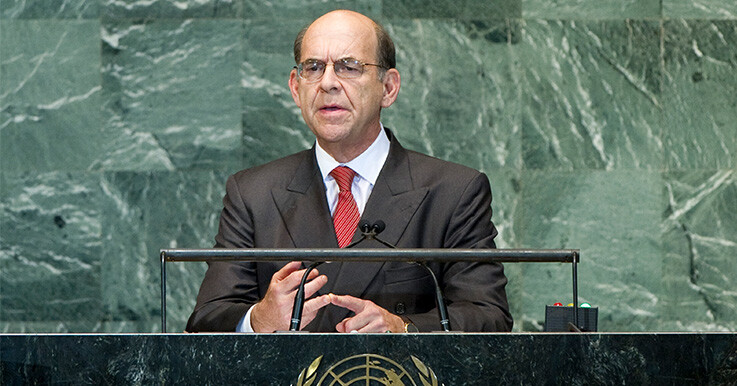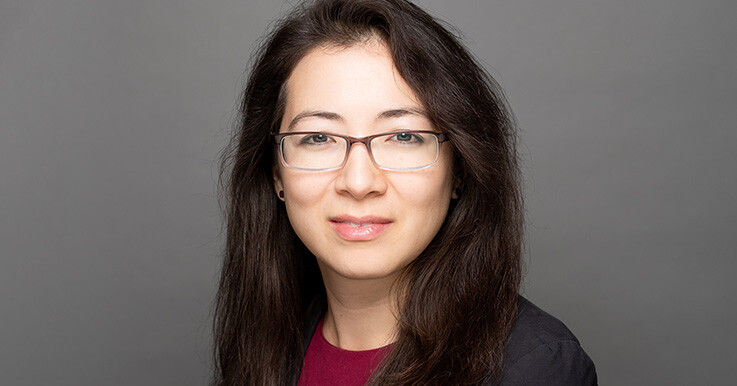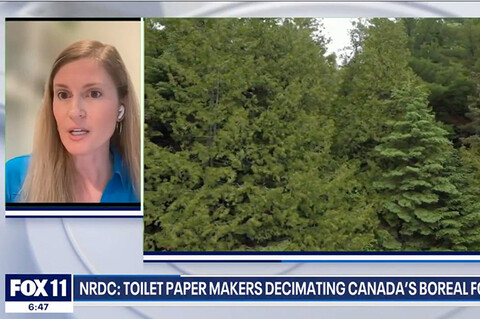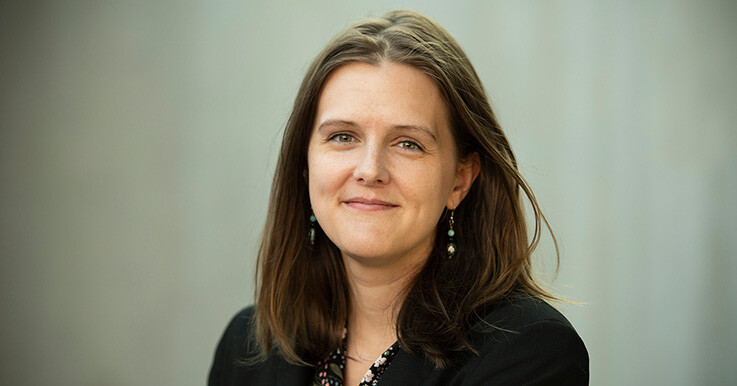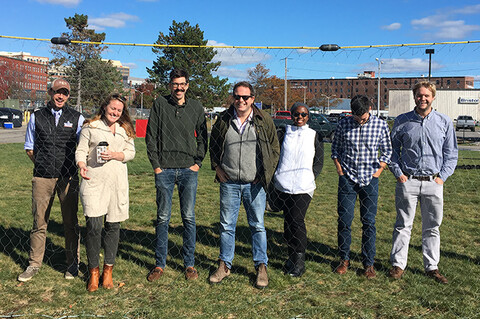This story is also available in the Winter 2024 issue of the Yale Law Report, along with more news about our alumni.
Earlier this year, in separate cases, a federal judge in Oregon and a state judge in Montana ruled in favor of young people who argue that their governments’ many failures to protect the climate violate their constitutional rights, among other claims.
Paul Rink ’19 JD/MEM worked on both cases, first as a law student, then as a summer clerk, and later as a staff attorney with Our Children’s Trust (OCT), the public interest law firm that represents the youth in those matters and many others around the world. The firm, which regularly partners with Yale Law School’s Goldman Sonnenfeldt Environmental Protection Clinic, has made a name for itself filing similar litigation in different jurisdictions.
“The young people in these cases are bringing crucial complaints before the courts — and winning,” said Rink, who is now a visiting assistant professor at Pace University’s Elisabeth Haub School of Law.
OCT’s cases are among several high-profile attempts through the courts to hold public officials and private companies accountable for their contributions to climate change. In recent years, dozens of cities and a growing number of states — represented by the law firm Sher Edling, which is the professional home of alumni Quentin Karpilow ’18, Yumehiko Hoshijima ’19, and Anthony Tohme ’22 — have sued major fossil fuel companies arguing they engaged in decades-long campaigns designed to deceive people about their climate impacts; California became the ninth state to file such a case in September.
But one of Rink’s biggest successes at OCT came after a failure in court. In June 2020, a few months before Rink joined the firm full time, a judge in Florida dismissed an OTC lawsuit against state officials there. Undeterred, the young people in the case — guided by Rink and OCT colleagues — filed a petition for rulemaking with the Florida Department of Agriculture and Consumer Services that eventually led to the enactment of an administrative rule setting several renewable energy goals — including a target to achieve 100% renewable energy in the state’s electricity sector by 2050 — along with specific monitoring requirements in furtherance of those goals.
“After the litigation avenue in Florida became less viable, we began thinking about how to stay engaged in the state,” Rink explained. “That year-long initiative led to a very tangible and rewarding success.”

Across the country and around the world, Yale Law School students, alumni, and faculty are making tactical decisions like these every day, battling climate change and fighting to protect the environment in courts, before legislative bodies, and in the public arena. They are beating back efforts to expand the extraction and use of fossil fuels in places ranging from Tennessee to the deep seabeds off the coast of Pacific Island nations. They are lobbying against the deforestation and degradation of the boreal forests in North America. And they are training the next generation of scholars and advocates to do all that and more.
For Rink, the work is a moral and ethical obligation.
“The people most likely to be impacted by climate change are the people who contributed least to the problem, geographically and generationally,” he said.
Catherine Iorns Magallanes ’91 LLM, a professor at Victoria University of Wellington in New Zealand, agrees. After decades of teaching and informal consulting with environmental and indigenous groups on conservation matters, Iorns obtained a certificate to practice in her country in 2020. The immediate catalyst was to file an appeal to protect one of New Zealand’s clearest freshwater springs. But the move was symbolic as well.
“If we don’t change business as usual, civilization — in terms of people being civilized to each other — will end,” she said. “We’ll all be fighting over clean air and water and food and land.”

Read More
The people most likely to be impacted by climate change are the people who contributed least to the problem, geographically and generationally.”
— Paul Rink ’19
